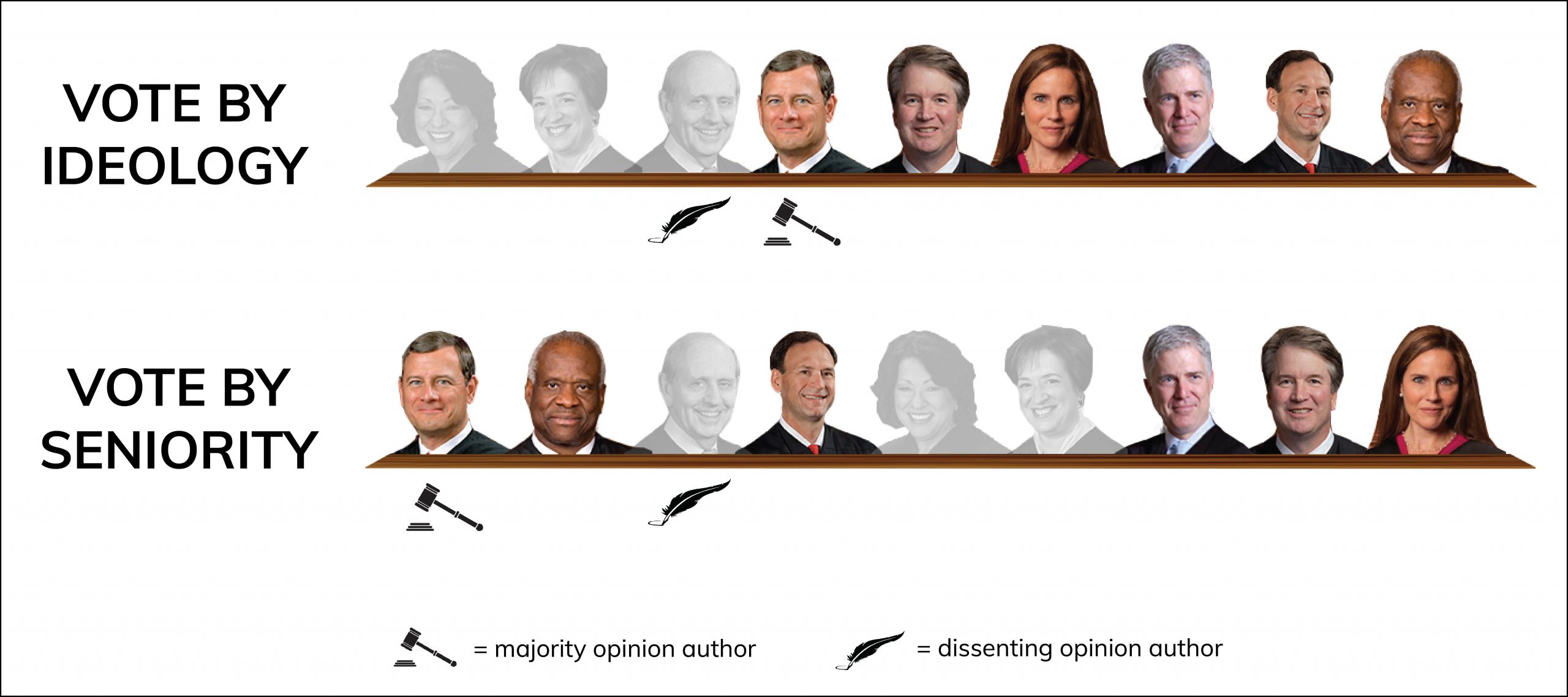SCOTUS News
Court holds that regulation guaranteeing union access to employees is unconstitutional

on Jun 23, 2021 at 3:01 pm

The Supreme Court on Wednesday ruled that a California regulation that permits union organizers to enter the property of agricultural businesses to talk with employees about supporting a union is unconstitutional. By a vote of 6-3, the court agreed with the two businesses challenging the regulation that the rule violates the Fifth Amendment, which bars the government from taking private property without compensation. The ruling was a major victory for property-rights advocates and a setback for unions.
The ruling came in a lawsuit filed in federal court by Cedar Point Nursery, a northern California strawberry grower, and Fowler Packing Co., a Fresno-based shipper of grapes and citrus fruit. The two companies challenged a nearly half-century-old state regulation that allows union organizers to enter the grounds of an agricultural business for up to three hours a day over a 30-day period, for a total of 120 days each year. Cedar Point and Fowler argued that by giving the union organizers access to their property, the regulation created an “easement” – a legal right to use the property – without their consent and without compensation, which violated the Fifth Amendment. After the lower courts rejected that argument, the businesses came to the Supreme Court, which heard oral argument in their case in March.
Writing for the majority, Chief Justice John Roberts wrote that when “the government physically acquires private property for a public use,” the Fifth Amendment’s takings clause “imposes a clear and categorical obligation to provide the owner with just compensation.” The access regulation, Roberts reasoned, falls squarely within this category: It creates a right to invade the growers’ property and therefore is a physical taking of property. By giving union organizers “a right to physically enter and occupy the growers’ land for three hours per day, 120 days per year,” Roberts continued, the access regulation takes away the owners’ right to exclude others from the property – which is one of the most important rights of owning property.
It does not matter, Roberts added, that the access given to the union organizers is not permanent or constant; the regulation still qualifies as a taking. Nor does it matter, Roberts observed, that the regulation does not create a true “easement” under state law; without the regulation, employers could have excluded the organizers from their property. Roberts also rejects as “unfounded” the suggestion – made by both the state and by Justice Stephen Breyer in his dissent – that the court’s ruling will jeopardize activities such as health and safety inspections at food-packing plants. Among other things, Roberts noted, the government may require such inspections as a condition of receiving permits and licenses.
Justices Sonia Sotomayor and Elena Kagan joined Breyer’s dissent. The question before the court, in Breyer’s view, is whether a “regulation that temporarily limits an owner’s right to exclude others from property automatically amounts” to a taking. The answer, Breyer contended, is no.
This article was originally published at Howe on the Court.


